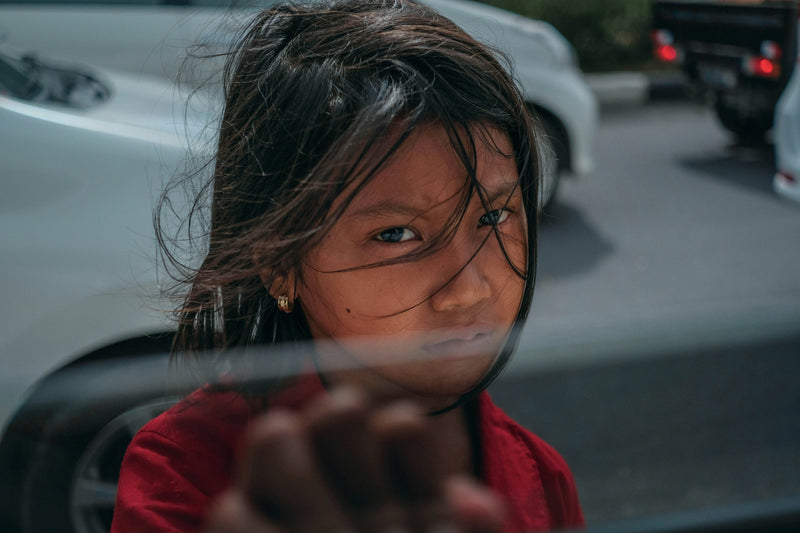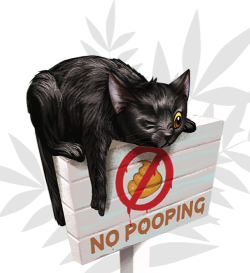
Conflict Crushers: How Children Can Learn to Transform Arguments into Understanding 🛡️✨
We've all been there—that moment when your child comes home teary-eyed because of a playground dispute, or when siblings are locked in what feels like their hundredth argument of the day over who gets the blue cup. Conflict is as much a part of childhood as skinned knees and bedtime stories. But here's the exciting truth: these friction-filled moments aren't just headaches to manage—they're golden opportunities for growth. 🌱
Learning to navigate disagreements isn't just about keeping the peace today; it's about developing crucial skills that will shape your child's relationships for decades to come. Let's explore how children can transform from conflict-avoiders into confident conflict crushers! 💪
Why Conflict Skills Matter More Than We Think 🧠💭
Think about the adults you know. The ones who handle disagreements with grace and effectiveness probably stand out in your mind—because this skill is relatively rare! Many of us grew up with limited conflict resolution models, hearing things like "just ignore it" or "don't rock the boat."
But research shows that children who learn healthy conflict navigation develop:
- Stronger friendships that weather disagreements
- Greater empathy and perspective-taking abilities
- More effective communication skills
- Higher emotional intelligence
- Better problem-solving capabilities
- Increased resilience when things don't go their way
In other words, teaching children to handle conflict isn't just about quieting today's argument—it's about equipping them with a social superpower that will benefit them throughout life. The reflective practices in the Confident Mindset journal help children build this inner security that makes conflict less threatening and more manageable. 📔✨
The Conflict Revolution: From "No Fighting!" to "How Can We Solve This?" 🔄
Traditional approaches to children's conflicts often focus on simply stopping the disagreement:
- "Just say you're sorry"
- "Give that back right now"
- "If you can't play nicely, nobody gets it"
While these interventions might create temporary peace, they miss the opportunity to teach lasting skills. A more effective approach transforms conflict from something to avoid into something to work through constructively.
The characters in the My Furry Soulmates series model this exact transformation, showing children that disagreements are normal parts of relationships that can actually bring friends closer when handled with care and respect. 📚🦊
The C.A.L.M. Method: A Kid-Friendly Conflict Framework 🧘♀️
Children thrive with simple frameworks they can remember in heated moments. The C.A.L.M. method gives them four straightforward steps for navigating disagreements:
C - Cool Down First 🧊
Before anything productive can happen, big emotions need to settle. Help your child identify their own best cooling strategies:
- Taking five deep breaths
- Counting backwards from 10
- Walking away briefly to a designated "calm corner"
- Using a physical release like squeezing a stress ball
- Using simple mindfulness techniques like focusing on their feet touching the ground
The Kindness Mindset Journal offers beautiful exercises to help children identify and practice these calming techniques before conflicts arise. 📝❤️
A - Ask and Listen 👂
Once calm, encourage your child to practice the magic of curious questions and genuine listening:
- "What happened from your point of view?"
- "How did that make you feel?"
- "What did you want/need in that moment?"
The key is helping children listen to understand rather than listening to respond. The Curiosity Mindset journal nurtures exactly this kind of curious approach to understanding others' perspectives. 🔍💭
L - Look for Solutions Together 💡
With understanding established, children can move to finding resolutions:
- "What would make this better for both of us?"
- "What's one idea that might work?"
- "Should we try taking turns? Creating a new rule? Finding a different way to play?"
This collaborative problem-solving teaches children that conflicts aren't win-lose situations but puzzles to solve together. The Confident Mindset journal helps children recognize their own problem-solving strengths, building confidence in their ability to work through challenges. 🧩🤝
M - Make It Right and Move Forward ➡️
The final step involves appropriate repair and a focus on the future:
- Making sincere apologies when needed
- Taking actions to fix any harm caused
- Agreeing on how to handle similar situations next time
- Consciously choosing to move forward without grudges
This step is critical—it teaches children that conflicts can be fully resolved rather than becoming ongoing sources of resentment. The characters in the My Furry Soulmates series beautifully demonstrate how friends can make amends and emerge from disagreements with even stronger bonds. 🌈✨
Different Kids, Different Conflict Styles 👧👦
Just as children have different learning styles, they also have different conflict styles. Understanding your child's natural approach helps you tailor your guidance:
The Avoider 🐢
These children retreat from conflict, often accommodating others to keep the peace. They need support to:
- Find their voice and express needs
- Understand that healthy disagreement doesn't threaten relationships
- Develop confidence in standing up for themselves
The Confident Mindset journal offers perfect support for these children, helping them build the self-assurance needed to engage constructively in conflicts. 🐢→🦁
The Charger 🦏
These children tackle conflicts head-on, sometimes steamrolling others in the process. They need help to:
- Pause before reacting
- Consider others' perspectives
- Moderate their approach to preserve relationships
The Kindness Mindset Journal provides excellent exercises for developing empathy and considering how actions affect others. 🦏→🐘
The Negotiator 🦊
These children naturally seek compromises but may struggle when solutions aren't obvious. They benefit from:
- Expanding their repertoire of problem-solving approaches
- Learning to address emotions before solutions
- Developing patience for the process
The Curiosity Mindset journal helps these children explore creative approaches to problem-solving through thought-provoking questions. 🦊→🦉
The Language of Peaceful Problem-Solving 🗣️
The words we use shape how conflicts unfold. Help your child develop a toolkit of phrases that de-escalate tension and open doors to resolution:
Instead of blame statements: "You always take my stuff!"
Try observation statements: "I noticed my markers were moved from where I left them."
Instead of demanding: "Give me that right now!"
Try expressing needs: "I need my turn with the tablet because my homework is due tomorrow."
Instead of character attacks: "You're so mean!"
Try impact statements: "When you called me that name, it hurt my feelings."
Instead of rigid positions: "I get to be the line leader or I'm not playing!"
Try interest-based statements: "I want to be line leader because I have a new way to get to the playground."
The Confident Mindset journal and Kindness Mindset Journal both include exercises that help children practice these more effective communication approaches. 📝🗨️
The Parent's Role: From Referee to Coach 🏆
One of the most powerful shifts we can make as parents is moving from being the conflict referee who decides who's right and wrong to being the conflict coach who helps children develop their own resolution skills.
The Referee:
- Jumps in quickly
- Decides who's at fault
- Determines the solution
- Enforces the resolution
The Coach:
- Observes first
- Asks questions that promote understanding
- Guides children to generate their own solutions
- Supports children in implementing their plan
This coaching approach takes more time initially but pays enormous dividends as children develop independence in handling disagreements. The My Furry Soulmates series models this perfect balance of adult guidance while empowering characters to work through their own conflicts. 🧠🏅
Conflict Practice: Making Peace a Skill, Not Luck 🎯
Just like any valuable skill, conflict resolution improves with practice. Create low-stakes opportunities for your child to flex their conflict muscles:
- Role-play scenarios: Act out common conflicts with stuffed animals or puppets
- Conflict story discussions: While reading books, pause to discuss how characters handle disagreements
- Family problem-solving sessions: Include children in resolving minor family dilemmas
- Post-conflict reflections: After a resolved conflict, discuss what worked well and what could work better next time
The Curiosity Mindset journal provides excellent reflection prompts that help children learn from each conflict experience. 🏹📊
When Conflict Involves Power Imbalances: Teaching Advocacy 🛡️
Not all conflicts happen between equals. Children also need guidance for situations involving power imbalances, such as:
- Disagreements with older children
- Conflicts with authority figures
- Bullying situations
- Group exclusion dynamics
In these situations, children need additional skills:
- Distinguishing between conflicts they can handle themselves and those requiring adult help
- Advocating for themselves assertively but respectfully
- Setting and maintaining healthy boundaries
- Seeking appropriate support when needed
The Confident Mindset journal contains specific sections that help children develop these self-advocacy skills, building the inner security needed to stand up for themselves appropriately. 🛡️💬
Conflict as Connection: The Surprising Upside of Disagreements 💞
Perhaps the most important lesson we can teach children about conflict is that working through disagreements often strengthens relationships rather than damaging them. When children experience resolving conflicts successfully, they discover:
- Deeper understanding of others' perspectives
- Greater trust that relationships can weather difficulties
- Stronger communication skills
- More authentic connections based on honest expression
- Increased confidence in their ability to work through problems
The characters in the My Furry Soulmates series beautifully demonstrate this concept, showing how friendships often become closer and more meaningful after navigating disagreements together. 📚❤️
The Lifelong Journey: From Playground Disputes to Global Solutions 🌎
The conflict resolution skills children develop now lay the groundwork for how they'll approach disagreements throughout their lives—from college roommate tensions to workplace disputes to community challenges. When we help children become conflict crushers rather than conflict avoiders, we're preparing them to be part of creating solutions at every level.
Through resources like the Confident Mindset journal, Kindness Mindset Journal, Curiosity Mindset journal, and the My Furry Soulmates series, children can develop the emotional intelligence, communication skills, and problem-solving abilities that will serve them—and our world—for decades to come. 🌱🌍
Let's Learn Together! 💬
What conflict resolution strategies have worked best with the children in your life? Have you noticed different approaches working better for different children? Share your experiences in the comments below!
Remember: When we help children see conflicts as opportunities rather than obstacles, we're giving them one of life's most valuable skills. Each disagreement becomes a chance to practice understanding, communication, and collaborative problem-solving—creating not just peaceful playgrounds today, but a more peaceful world tomorrow. ✨



0 comments